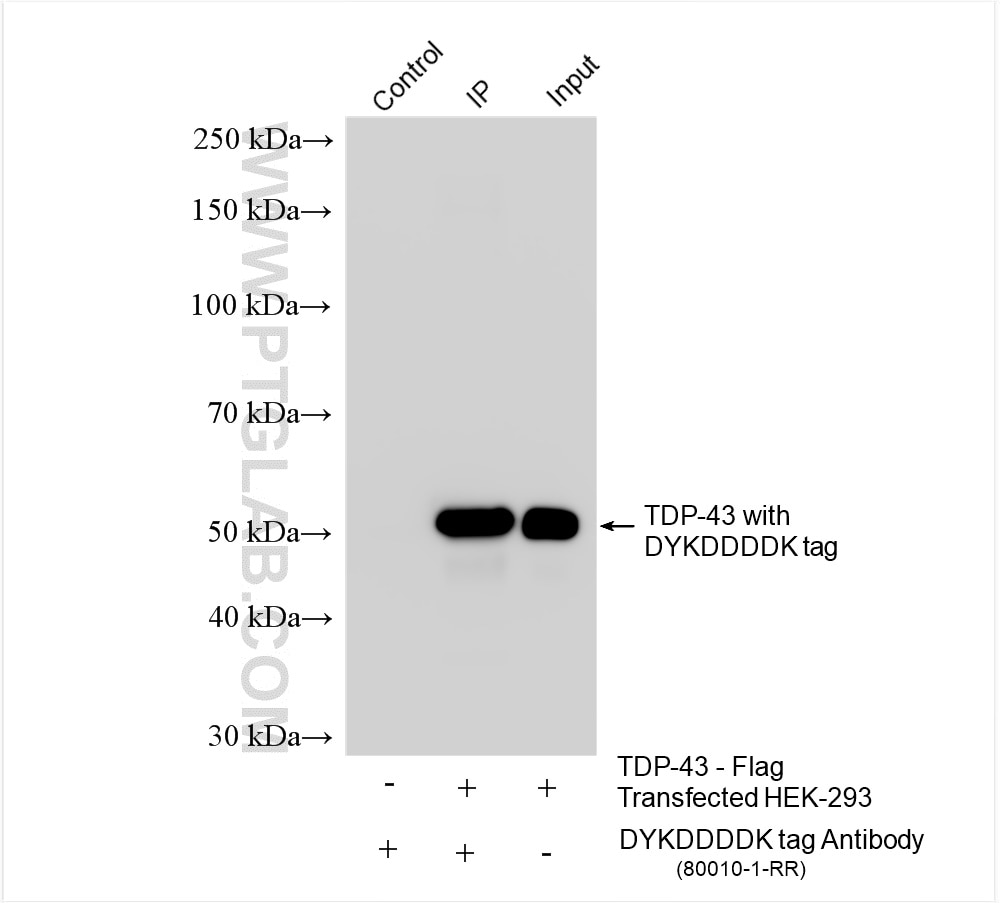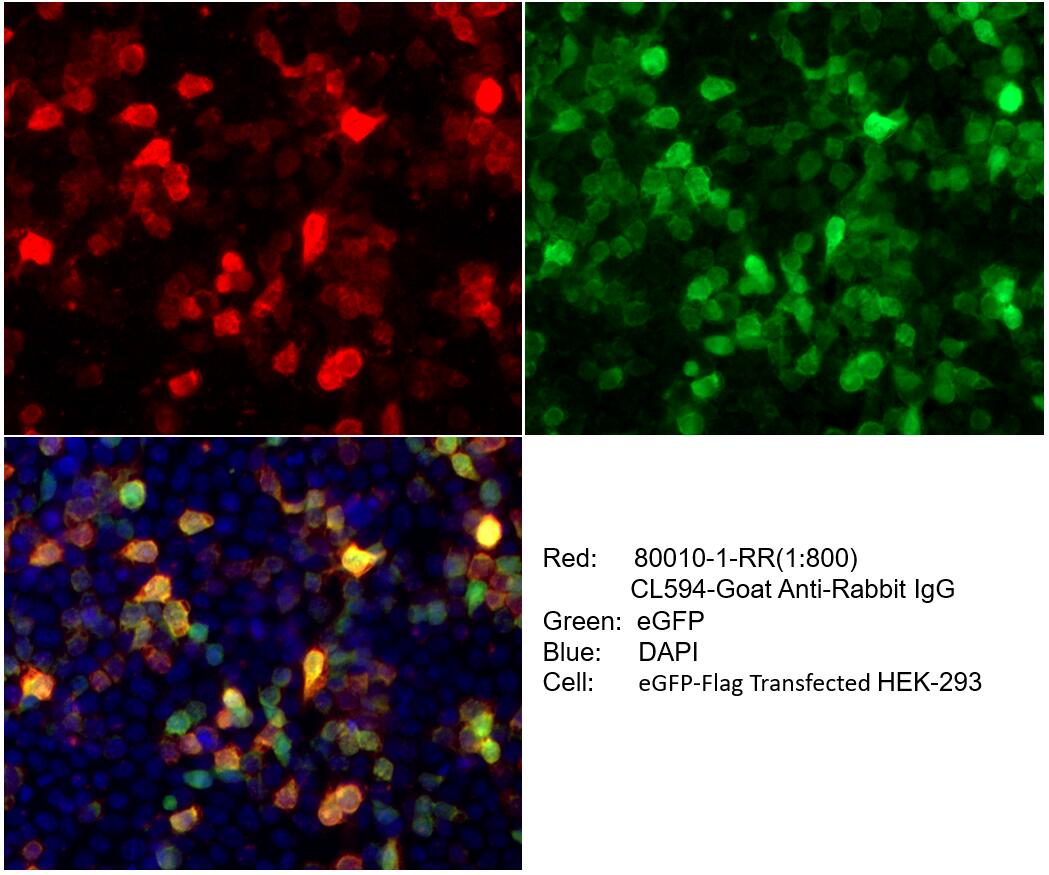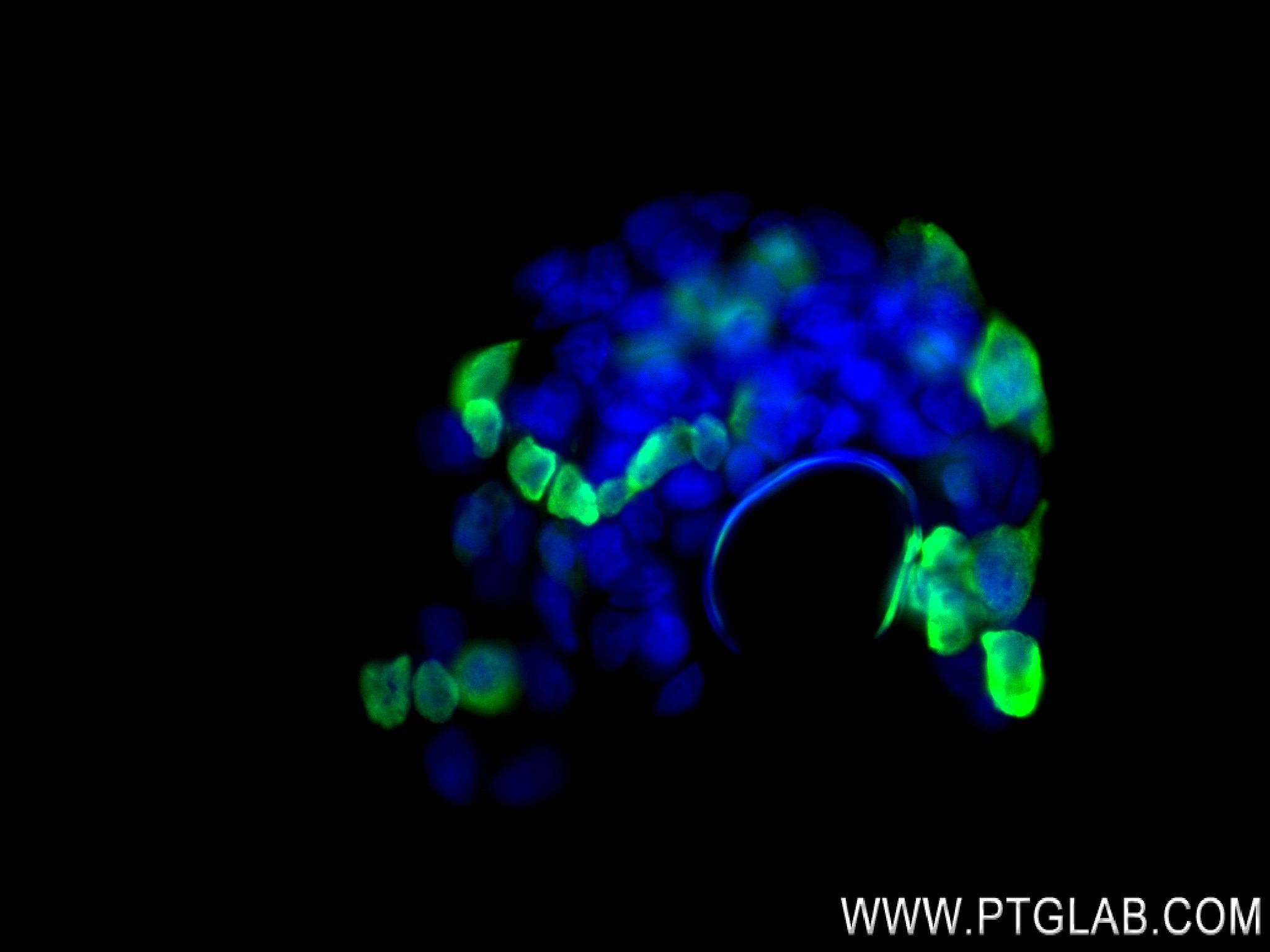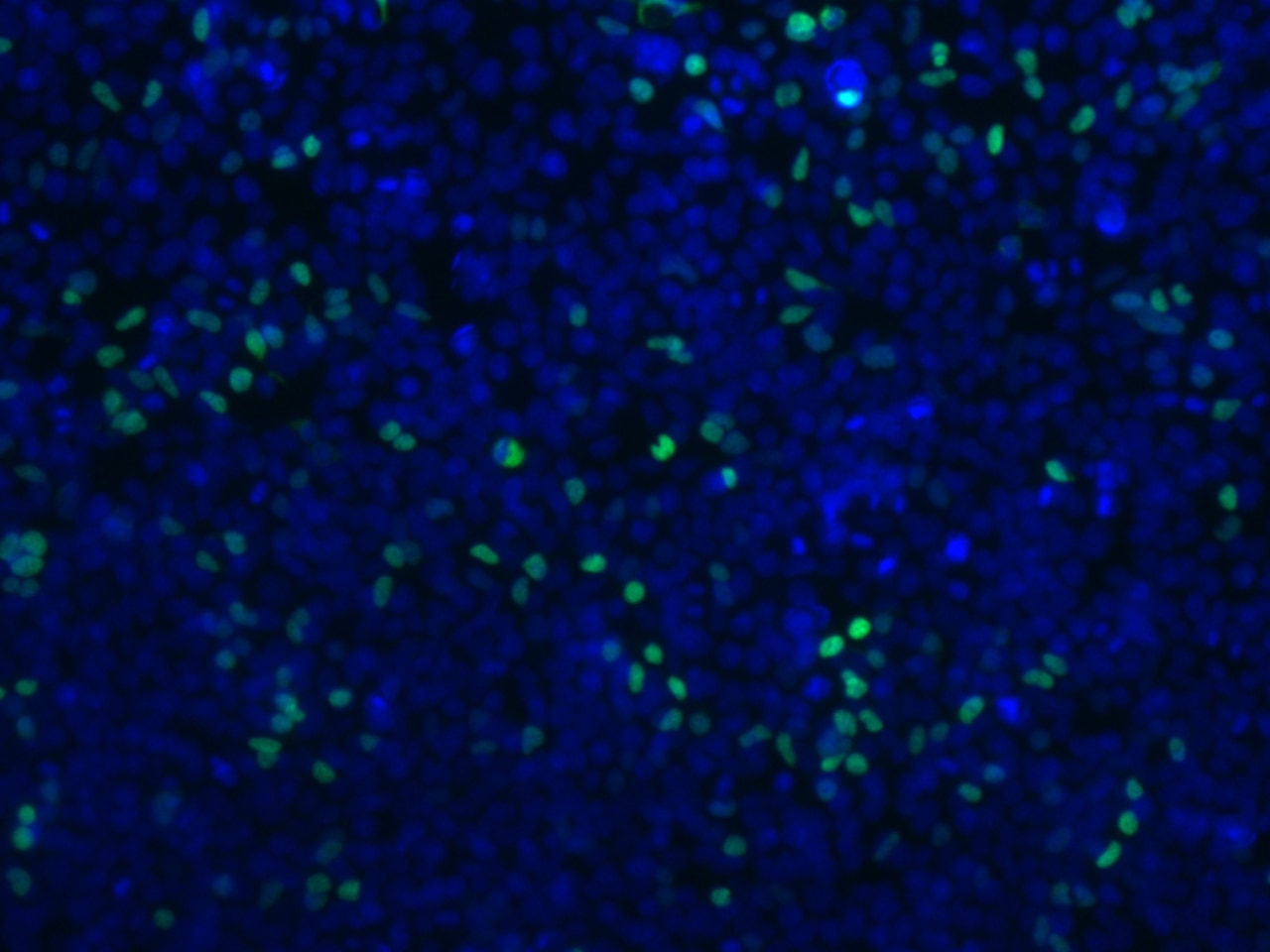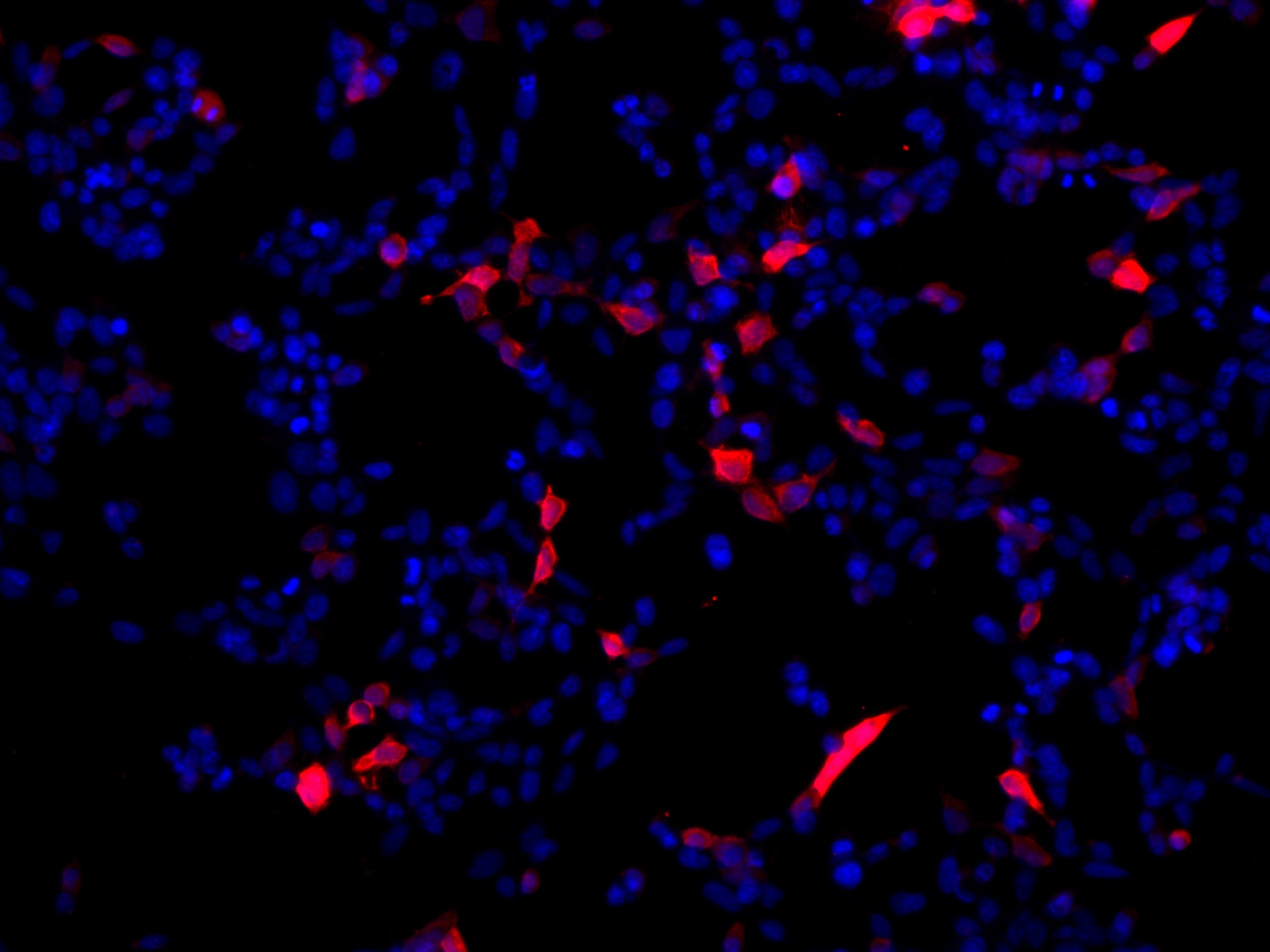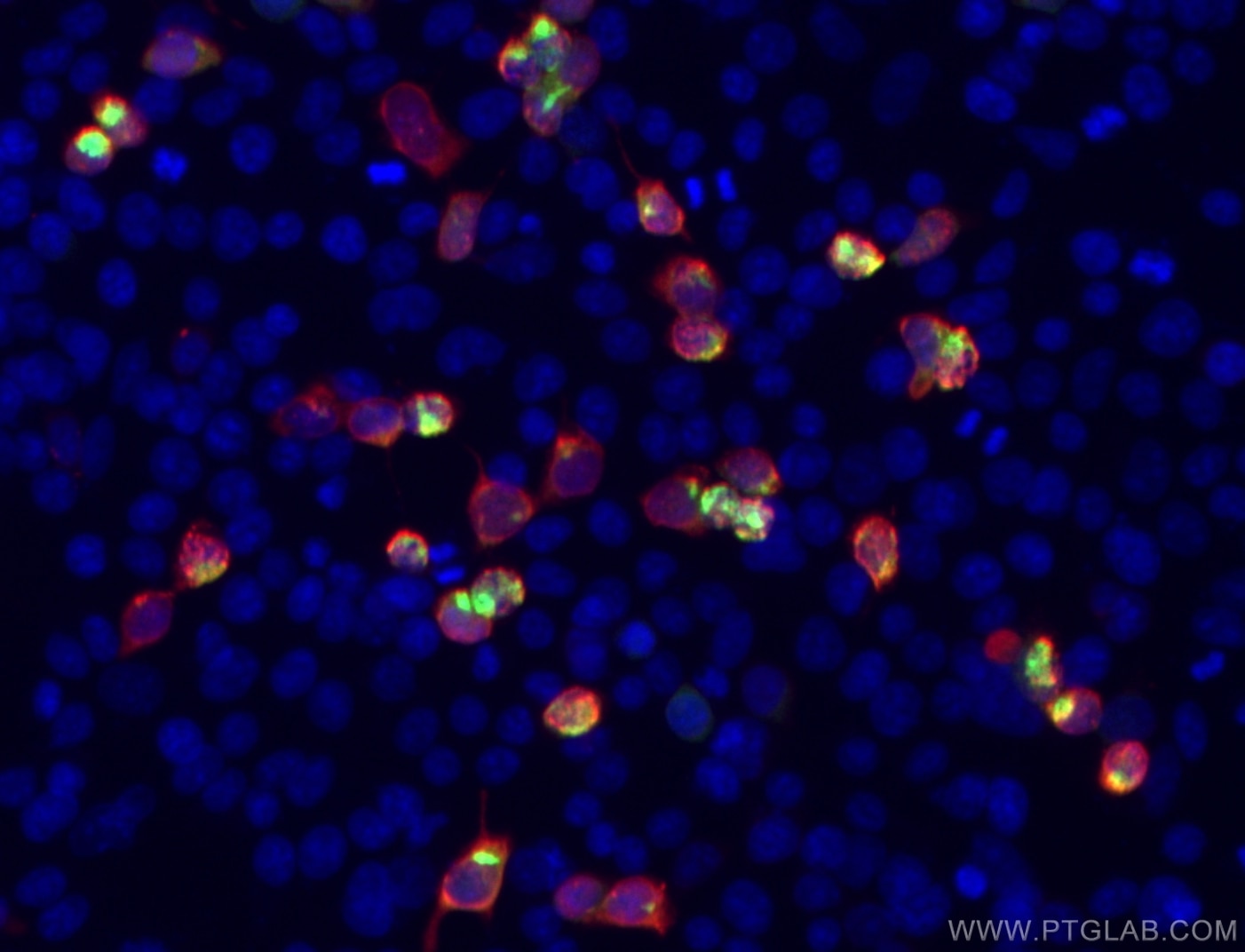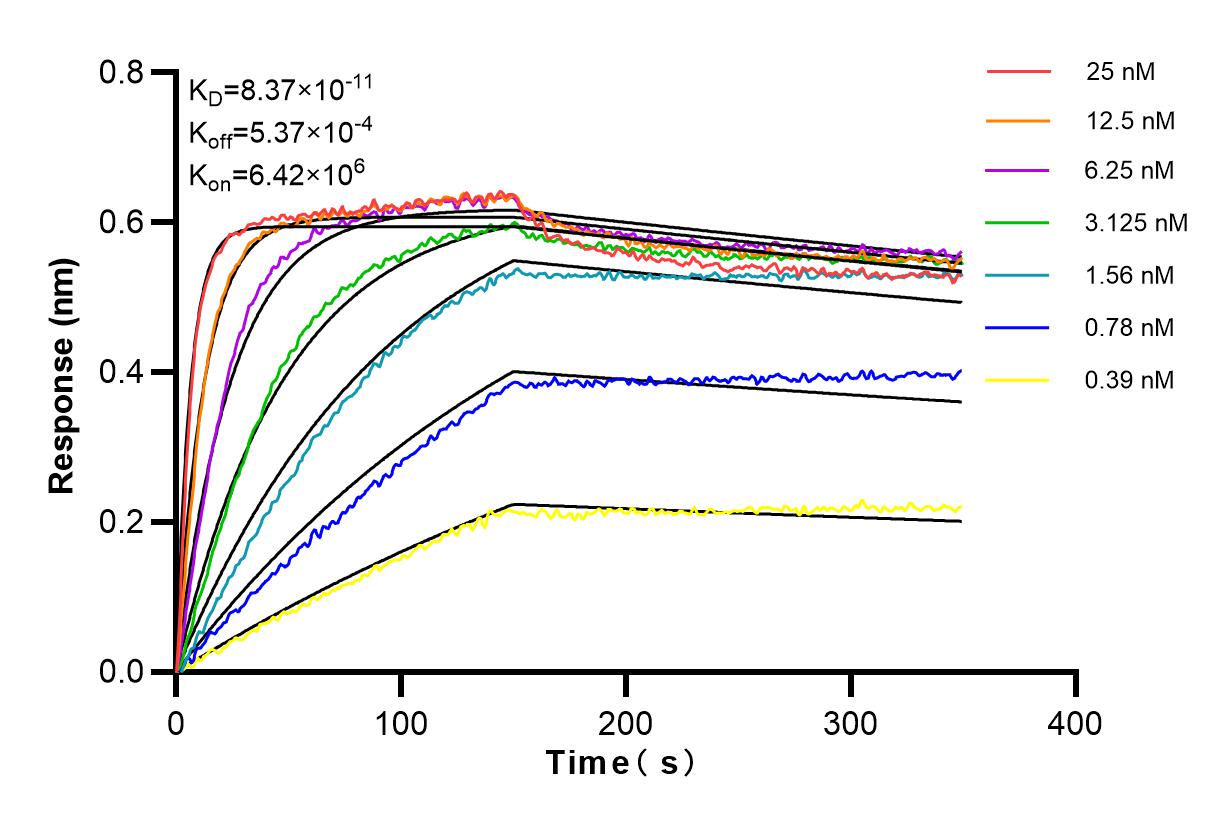Validation Data Gallery
Tested Applications
| Positive IP detected in | Transfected HEK-293 cells |
| Positive IF/ICC detected in | Transfected HEK-293 cells, HEK-293 cells |
| Positive FC (Intra) detected in | Transfected HEK-293 cells |
The antibody 80010-1-RR is suggested for IP and IF.
Recommended dilution
| Application | Dilution |
|---|---|
| Immunoprecipitation (IP) | IP : 0.5-4.0 ug for 1.0-3.0 mg of total protein lysate |
| Immunofluorescence (IF)/ICC | IF/ICC : 1:200-1:1000 |
| Flow Cytometry (FC) (INTRA) | FC (INTRA) : 0.25 ug per 10^6 cells in a 100 µl suspension |
| It is recommended that this reagent should be titrated in each testing system to obtain optimal results. | |
| Sample-dependent, Check data in validation data gallery. | |
Published Applications
| IF | See 23 publications below |
| IP | See 50 publications below |
| CoIP | See 18 publications below |
| RIP | See 1 publications below |
Product Information
80010-1-RR targets DYKDDDDK tag in IF/ICC, IP, CoIP, RIP, ELISA applications and shows reactivity with recombinant protein samples.
| Tested Reactivity | recombinant protein |
| Cited Reactivity | human, mouse |
| Host / Isotype | Rabbit / IgG |
| Class | Recombinant |
| Type | Antibody |
| Immunogen |
CatNo: Ag2329 Product name: Recombinant DYKDDDDK tag protein Source: e coli.-derived, PGEX-4T Tag: GST Sequence: DYKDDDDK 相同性解析による交差性が予測される生物種 |
| Full Name | DYKDDDDK tag |
| Gene Symbol | |
| Gene ID (NCBI) | |
| RRID | AB_2882940 |
| Conjugate | Unconjugated |
| Form | |
| Form | Liquid |
| Purification Method | Protein A purification |
| UNIPROT ID | FLAGTAG |
| Storage Buffer | PBS with 0.02% sodium azide and 50% glycerol{{ptg:BufferTemp}}7.3 |
| Storage Conditions | Store at -20°C. Stable for one year after shipment. Aliquoting is unnecessary for -20oC storage. |
Background Information
DYKDDDDK Tag (Equivalent To FLAG Antibody From Sigma) with the following sequence DYKDDDDK, is a hydrophilic tag for recombinant protein technology. Tags can be used as a tool to localize gene products in a variety of cell types, study proteins topology, and also help to identify and characterize new, low abundance or poorly immunogenic proteins. Due to its high hydrophilic character, the DYKDDDDK tag is likely to be located on the surface of a fusion protein, which enables the tag to be accessible for antibodies. DYKDDDDK Tag Antibody is generated against 1xDYKDDDDK tag (DYKDDDDK) and can recognize protein containing one or more DDDDK tags, independently on N-terminal, C-terminal or internal regions of the target protein. Anti-FLAG is a registered trademark of Sigma-Aldrich Biotechnology.
Publications
| Species | Application | Title |
|---|---|---|
Mol Cancer A positive feedback circuit driven by m6A-modified circular RNA facilitates colorectal cancer liver metastasis | ||
Mol Cancer Overcoming multi-drug resistance in SCLC: a synergistic approach with venetoclax and hydroxychloroquine targeting the lncRNA LYPLAL1-DT/BCL2/BECN1 pathway | ||
Cell Metab TMEM41B acts as an ER scramblase required for lipoprotein biogenesis and lipid homeostasis. | ||
Nat Commun A lung-selective delivery of mRNA encoding broadly neutralizing antibody against SARS-CoV-2 infection | ||
Nat Commun Inhibited peroxidase activity of peroxiredoxin 1 by palmitic acid exacerbates nonalcoholic steatohepatitis in male mice | ||
Adv Sci (Weinh) The Hemagglutinin of Influenza A Virus Induces Ferroptosis to Facilitate Viral Replication |

